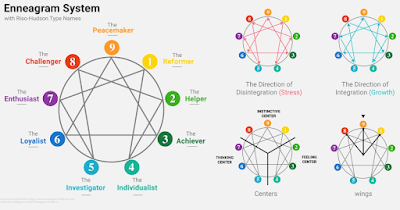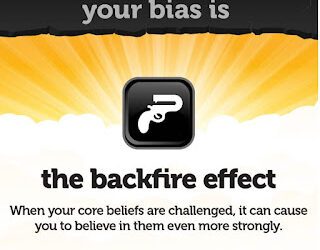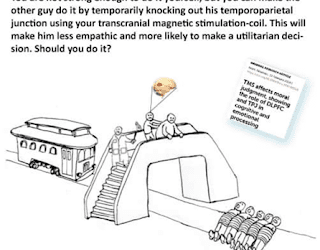Well, it’s the time of year where the political posts are starting to ramp up and people on all sides are starting to remember how stupid, biased, and downright evil some of their family and friends are. 😅
Because I recently moved, I have a mostly new social group, so I figured I need to get in on the fun and show my new friends how much they should hate me. Ok, not really…and that’s the point.
Politics has huge potential to make a positive impact for millions of people while at the same time it can deeply satisfy our fundamental need to belong. I understand the strong draw to politics, but despite all that, I’m going to argue that for most people and most issues, political engagement isn’t a wise use of your time, money, reputation, emotional energy, or other resources (click here for part 2 of this article showing the complexity of the issues). What I mean by political engagement is researching issues or candidates (to include watching political shows and debates), debating issues or candidates, promoting positions or candidates (to include protesting), donating money to candidates or parties, and voting.
While that is my general view and argument, there are good reasons for exceptions that the reasons below don’t necessarily apply to. Some exceptions would be if you run for office or work in the field of politics, participate in local politics, discuss (but not argue) politics in person with family or friends, take a stand on a very important and obvious moral issue (but not the political aspects of it), and perhaps a few others that I haven’t named.
Underlying my whole argument is the view that Christians should be good stewards of their resources. I don’t know many Christians who would disagree with that in principle, but it’s still good to mention for understanding why the following points are important. Whether you agree or disagree with what I say, hopefully, I can convince you to move beyond the dogmatic talking points that radiate from all sides of the political spectrum and think more broadly and realistically about politics. The following seven reasons are why I think Christians should almost completely stop using their time, money, and energy for politics. This means
Reason #1: Statistical Irrelevance
At best, each individual vote is nearly worthless. It’s one in a million, give or take a bit depending on your state, and if your candidate loses, your vote was worthless (although this article makes a pretty good case that voting for a third-party candidate isn’t a wasted vote). On top of that, most states are nearly guaranteed to vote for a certain party, which means if you vote for the winning candidate, your vote probably wasn’t needed and if you voted for the losing candidate, your vote certainly wasn’t needed. Swing states are different, but even then, they are typically pretty decisive and your individual vote won’t really matter a whole lot (especially if you voted for the loser).
I’ve heard people on both sides tell me that not voting is like giving a vote to the other side (they all seemed to assume I would have voted for their candidate if I did vote), but there’s no reason to suspect that only people on one side will suddenly decide not to vote. This means that your non-vote will likely be canceled out by a non-vote on the other side.
Reason #2: Dunning-Kruger Effect
The Dunning-Kruger effect is when people with a small amount of knowledge in an area have a very high degree of confidence, but as they gain genuine expertise, their confidence drops until they reach a very high level of knowledge before their confidence starts to go back up.

Politics is perhaps the broadest and most complex topic there is. Some issues are more complex than others, but in general, to have a responsibly informed view on many issues requires a high level of critical thinking skills (which most people don’t have), the ability to evaluate evidence without bias (which most people can’t even come close to doing, especially in political issues), and graduate-level knowledge and understanding in several subjects (including, but not limited to theology, ethics, public policy, anthropology, sociology, various disciplines of psychology [moral, social, developmental, health, and more], political science, statistics, various types of law [torts, tax law, civil law, criminal law, international law, corporate law, constitutional law, family law, etc.], education, science, U.S. and world history, biology, medicine, epidemiology [especially in our current situation], healthcare, environmental science, micro and macroeconomics, insurance, military operations, world religions, and foreign relations).
If you disagree that there’s such a high level of complexity, it’s very likely you might be afflicted with a case of the Dunning-Krugers and need a steady dosage of James 4:6 (and maybe a library card, too) 😉. Seriously though, unless you read and understand peer-reviewed articles across several disciplines for each issue, then you aren’t well informed, and if you’re not well-informed, then your views are no more likely to benefit society than the people who completely disagree with you.
If it takes so much effort and knowledge to understand many individual issues, how much more time and effort does it take to understand the several issues that are pertinent for selecting a candidate or a party? Let’s face it, with such complexities, even the “experts” aren’t even experts (political scientists are the closest things to experts, yet they aren’t the main voices we hear. Pundits, politicians, and some snarky guy you follow on social media aren’t even close to being experts). Maybe this is why there are genuinely well-meaning and smart Christians on all sides of the political spectrum.
Being a single-issue voter doesn’t solve the problem either, it just ignores it. Someone might say abortions are wrong, end of story, so it’s that simple; however, this ignores how other issues affect the life and well-being of people and the potential long-term effects that certain policies might have on abortion and mortality rates. For much more depth of how complex politics can be, even surrounding abortion, check out my follow-up article here.
Reason #3: Christian Witness
It’s no secret that talking politics in our culture, especially on social media, usually leads to strife. People take it very seriously and they are very certain of their views. Psychological science research shows that people are really poor at thinking straight when it comes to politics. If you disagree with someone politically, it usually doesn’t end in hugs and increased mutual respect, although close relationships are probably exceptions to this. Instead, political discussions usually end with people thinking the other person stupid, biased, evil, or some combination of those three.
If someone thinks you are stupid and/or evil, it’s nearly certain they will not respect what you say when it comes to religion. Would you rather win a convert to your political views or to Christ? It’s not necessarily an either/or situation, but it often is. Also, consider who you might want to influence. I’m guessing a large majority of the people you know who you would want to become Christians disagree with you politically. You may gain friends and followers from other Christians through your politics, but in doing so, you’re likely losing the people who need Jesus the most.
A final point regarding your witness is that there may be times where not participating in politics might compromise your witness. The main take away with this point is to be aware of the effects that political engagement or disengage might have on your ability to influence others and who you may want to influence.
Reason #4: Regression to the Mean
Chances are that you hated one of the last two presidents, but guess what? Our country is still just fine. No, it’s not perfect, and yes certain situations could have been handled better, but there doesn’t seem to be good evidence that Democrat or Republican policies have been consistently better in the long-term. We’ve gone back and forth with our presidents, Senate, and House of Representatives. Both parties have had control of Washington and neither has delivered the utopia they’ve promised. We have a fairly stable and self-correcting system so that no single election cycle will likely ruin our country, and even if it did, it couldn’t be predicted by armchair pundits.
Reason #5: Psychological Freedom
It’s been 6-8 years since I’ve almost completely withdrawn from the news and politics and it’s been wonderful! It’s incredibly freeing and removed a lot of stress from my life…and I wasn’t all that into politics in the first place. The question I get when I tell people this is, don’t you miss important information? No, I don’t. There are so many ways that news spreads in our culture that it’s almost impossible to avoid. I hear things from my wife, friends, on social media, commercials, and other places. I ignore most of it, but if something seems interesting or important, I can and do look into it in more depth.

Reason #6: Moral Licensing
Moral licensing is an observed psychological effect in which doing or being good licenses you to do wrong…and it usually happens unconsciously so we’re not aware that we do it. The simple act of voting makes us feel as though we’ve done a moral good, but then we often feel as though we have done all we need to and are no longer responsible for helping others. One study found that white people who endorsed Obama were subsequently more likely to favor white people (discriminate against black people). While not tested, it seems quite reasonable that for a large number of people, voting for a pro-life candidate or policy gives a license not to lift a finger for the thousands of kids in foster care waiting to be adopted. Likewise, voting for entitlements gives the license not to donate time and money. In may sound counterintuitive, but the act of voting or engaging in politics may actually make you a worse person, even if you have good intentions.
Reason #7: Opportunity Costs
We are limited beings who cannot do everything. Just like it’s important to budget our money so that we don’t waste it, we also need to budget our time and other resources. Every hour you spend watching the news, studying political issues, or debating politics could be used studying the Bible, reading peer-reviewed journal articles, having edifying conversations, hanging out with your kids, serving the poor, or any number things that would be more beneficial for you, your family, and your community. When deciding whether or how to engage in politics, consider what you are giving up in order to do so.
Reason #8: No vote = vote
It doesn’t seem like people agree on much in politics today, but one thing that seems pretty widespread is the discontent with the current situation. A lot of people vote for a candidate begrudgingly. They strongly disagree with the candidate or disrespect them, but vote anyway because their candidate isn’t quite as bad as the other candidate. Unfortunately, voting for someone under such a circumstance is positive reinforcement of their methods and/or policies that both sides learn from and take advantage of in future elections. Not voting sends the message that you are not willing to support someone who is divisive, morally bankrupt, or not qualified for the position. Sure, it’s not a strong message, but it’s not really any weaker than the power of your vote either.
Reason #9: Psychological Harm
After discussing the trolley problem in class, my professor said thankfully we don’t have to make these difficult decisions about life and death, otherwise, it would be psychologically damaging. But we do make life and death decisions for others when we vote. You may vote to save babies’ from abortion, but that likely comes at the cost of someone else in our country or in the world not getting life-saving food or healthcare. Maybe it’s a hundred to one ratio, but that doesn’t change the fact that it’s a trade-off. Political policies affect groups of people differently, often in life and death ways, and our political actions affect that. If you want to claim a single vote isn’t that big of a deal, then why vote at all (see point #1 above). If you think your vote does matter, then you should take it very seriously to come to the right conclusion (see point #2 above and my follow-up article on the complexity of politics).
Conclusion
Is it wrong to engage in politics? No, probably not, but it’s not a good use of time either. This is perhaps a quintessential modern example of something that is permissible but not beneficial (1 Corinthians 10:23). Realistically, all of us have ill-informed views on politics (even the “experts”) and a single vote is virtually meaningless. In what other domain would you ever consider using your time and energy so frivolously? Why not choose more fruitful options for your life.
Alternative Activities
Rather than just encourage people to disengage from politics, here are a few alternatives that will be more fruitful:
1. Go and serve people, especially where you are passionate. Donating blood (including platelets or plasma) is a super-easy way to save lives. If you are strongly against abortion, serve at an abortion clinic or with a ministry on the frontlines so you can be a light in that environment so you can actually make a difference in someone’s life and change their mind. If you’re passionate about education, become a teacher or tutor, volunteer at a school or with the PTO, or find other ways to help people learn.
2. Foster and/or adopt children. You can make a huge impact in the life of a person who lives in your home or becomes a permanent part of your family. Doing so will also afford you the opportunity to make a big impact in other people’s lives as they become aware of what you’ve done.
3. Talk about more edifying topics. Ask people about themselves. Talk about truth. Encourage others. Share your experiences with others. Collaborate on how to better serve in your church or reach unbelievers.
4. Read, study, and learn about more important matters like the Bible, theology and apologetics books, peer-reviewed science and philosophy articles, marriage and parenting books, or other important and valuable topics that will help you be a better person and/or know God better.
5. Become a missionary. Extreme? Yes, it is, but if you really want to make a difference in people’s live, go to a place where you can help meet physical needs (food, water, shelter, clothing), educational and vocational needs, and spiritual needs.
6. Use people’s passion about political issues as a way to get to know them and share the gospel. Ask people why they hold certain positions, how their views developed, how they fit with their religion or worldview, how do they know their views are right or best, and so on. The point isn’t to trap anyone or convince them to change, but to learn about the other person and build a friendship with them.
7. Run for office. If you truly want to make a difference via politics, go and do it. Don’t just elect others to do it for you and then complain about their failures. Go get the education and experience required to make you an excellent politician, and then go make a difference. Be honest, transparent, incorruptible, and stand out as being different than all the others.
8. Get involved and talk about issues that (nearly) everyone is against such as human trafficking or child abuse.
9. If you just feel as though you must vote, hold yourself to a higher standard than others in our society. Don’t just view issues through a single lens. Look at issues and candidates from multiple perspectives, including the likely impact it will have on the future of politics (e.g. voting for a candidate on the far end of either party is likely to encourage more extremism in the future), and try the best you can not to let your political engagement compromise your influence for Christ.



